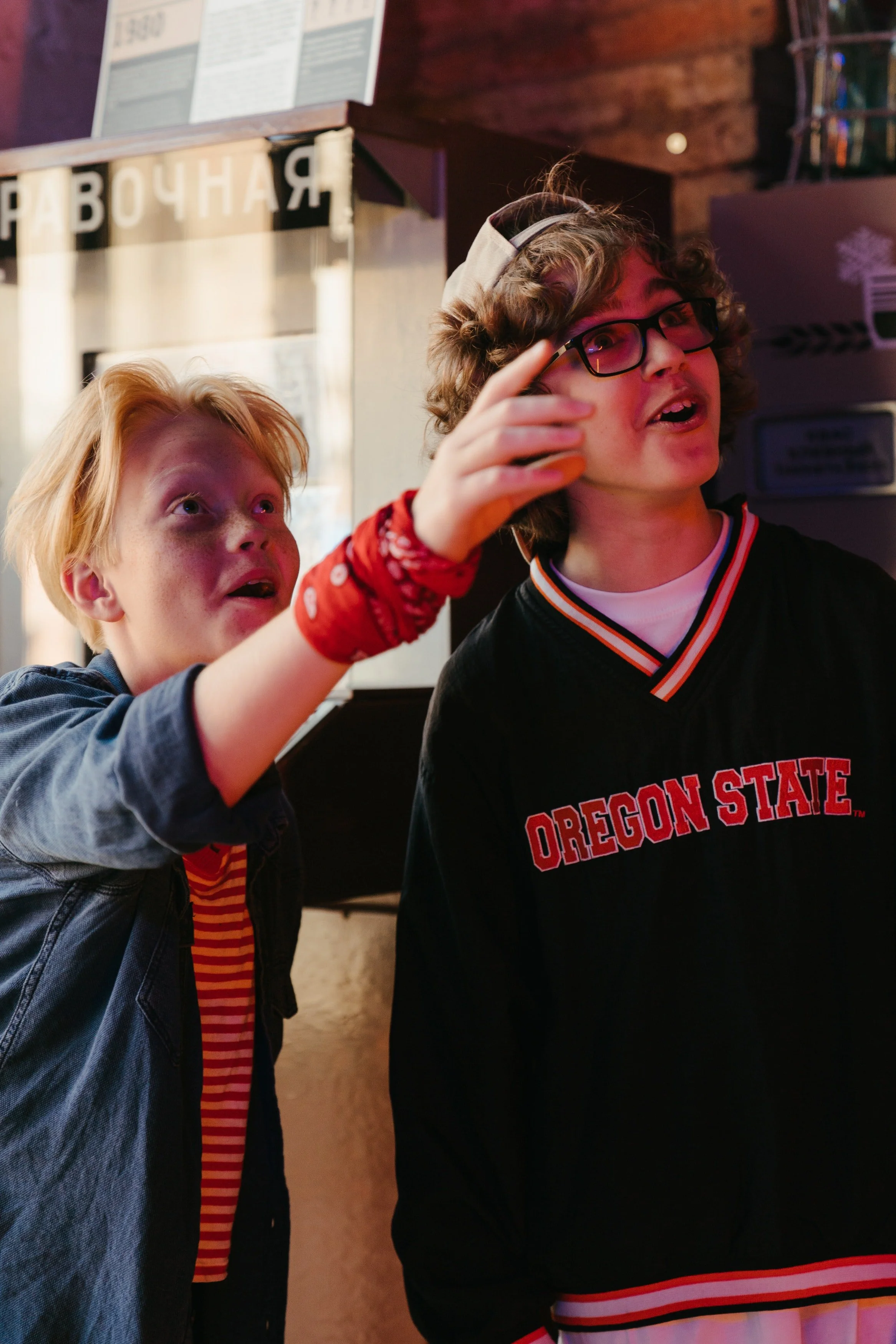Social Skills Tips for Successful Get-Togethers
Social Skills Tips for Successful Get-Togethers
Have you ever wondered if there are available social skills tips online?
Would you like to spend more time with others, but you struggle socially?
Are you frustrated or dissatisfied with your social life?
How do you learn the social skills necessary to engage in successful get-togethers if you have limited chances to engage?
To develop friendships, we need to share space and time — we need to get together!
Learning how get-togethers work is a great social skills activity.
Hosting a successful get-together is a great social skills goal and a vital way to develop social skills. Autistic and other neurodivergent teens and adults often struggle with the finer points of initiating and cultivating friendships. Multiple factors contribute to this social vulnerability, including inherent differences with social communication.
A good way to begin a close friendship is to invite someone you would like to get to know better to get together. A get-together is more likely to be successful if you know and follow some guidelines to make your time together enjoyable for all involved.
If you’ve struggled socially in the past, the social skills necessary for successful get-togethers are still emerging. That is, these may not come easy because you haven’t had the experience and practice to cultivate the essential social skills to make and keep friends — yet. And, you just may not have found your people — those that normalize and even share your neurotype and communication style.
If you don’t yet have someone who fits the “gold standard” — a casual acquaintance whom you like and who seems to like you, and with whom you would like to deepen a friendship — you can have a get-together with a relative around your same age or an already established, close friend. The point is, to practice these skills. Practicing get-togethers is how to improve your social skills and have fun!
Parents and other caregivers can play a vital role to support their loved ones in this scenario, by helping organize get-togethers and making sure they go smoothly.
Get-togethers need to be activity-based, to avoid boredom and the pressure of making conversation the whole time. Whatever activity you select needs to be based on your common interests. Friendships are based on common interests — movie genres, music, art, plants, social justice, video games, nature, sports, animals, outdoor activities, musical theater and more. Above all, you want this get-together to be fun and a successful interaction with like-minded people!
To have successful get-togethers, you need to:
Prepare
Make plans using the five W's
WHO is going to be there. You might just have one friend you want to invite, or it might be more than one person. If it’s more than one person, you want them to know who else is invited so that there are no surprises.
WHAT you're going to do. Get-togethers are easier and more fun if you plan and prepare effectively. A common get-together idea — if you are comfortable having an acquaintance over to your house — is to play video games. Another option is to game together online, which has become familiar and even necessary during the pandemic.
WHERE you're going to get together. If you aren’t clear about where you’re going to meet, the get-together might not ever take place!
WHEN you're going to get together. You need to decide in advance that you are, in fact, going to get together. If you don’t, your schedules might not align and a get-together might not happen.
HOW the get-together is going to happen. Will you need to arrange transportation? Do they take reservations at the bowling alley or arcade? Do you need to set up a multiplayer game? These details need to be worked out beforehand and communicated with everyone.
Have other activities ready. If the get-together is taking place at your house or at a park, you want to have other activities ready to go in case you or your guest get bored and want to do something else. Some ideas include:
Movies or TV shows everyone likes to watch
Other video games that you all enjoy
Board games that you like to play
Sports equipment (a basketball, ping pong table, darts, baseball, etc)
Make sure your space is presentable. It’s important that your room/car is clean; that shows respect for your guest(s). It’s also a good idea to put away anything you don’t want anyone else to see or touch. That way, you won’t have to be rude and tell your guest(s) not to touch something that is of value to you. If it’s put away before they get there, you don’t have to worry about that situation.
Begin
Greet your guest. Say hello, ask them how they’re doing. Some people might give a high five, a fist bump or even a hug.
Get consent for a hug; not everyone is comfortable with that level of physical touch.
Invite them in. If you don’t invite them in and move aside they might feel awkward and anxious.
Introduce them to anyone they don't know. If they don’t know the other people, they might feel uncomfortable.
Give them a tour. Your guests will feel more relaxed if they know where the bathroom is located and are familiar with the surroundings.
Offer them refreshments. It’s always polite to offer guests food and beverages.
Ask them what they want to do. Even though you may have already made plans, your guest may have changed their mind. If this is the case, you will want to remember to “go with the flow” and let them pick the activities.
Engage
Do what your guest wants to do. Let them pick the activities to make sure they have a good time (except if your guest wants to do something dangerous or inappropriate).
Be a good sport. Don’t cheat, don’t be argumentative, don’t be a sore loser, don’t be a bad winner. People don’t want to play with a poor sport.
Give sincere compliments. If there’s something you like about your friend — like their outfit, or their knowledge on a topic — tell them. This makes people feel good.
Praise them. If they do something well, let them know.
Be loyal. Don't argue, criticize, or make fun of them. If someone else does this to your guest, stick up for them. You can say, “Please don’t do that, it makes everyone feel bothered.”
Pay attention to them. Stay off your phone unless it’s your friend’s idea to look at them together.
Suggest a change if you get bored. Say, “How about when we're done with this we play something else?"
Trade information. If you trade information about 50% of the time, this will help you get to know each other better and develop a closer friendship.
End
Give a cover story for leaving or ending the get-together. “I have to go soon," “I have to eat dinner," “I have to go to bed soon" are examples of cover stories you might use.
Walk them to the door. It is rude to make your guest find their way out by themselves.
Thank them for getting together. This shows that you appreciate them.
Tell them you had a good time if you did. If you didn’t have a good time, remember that friendship is a choice, and you don’t have to be friends with this person.
Say goodbye and you'll see them later. This is the right time to make future plans, if you would enjoy that.
More Tips for Parents to Help Teens Have Good Get-Togethers
Provide a safe and comfortable environment in your home
Help your teen organize an activity that is of shared common interest
Allow your teen's friends to hang out with some privacy
Check on conversations (offer snacks at various times to unobtrusively monitor the get-together)
Remind your teen to trade information around 50% of the time
Try to limit first-time get-togethers to about two hours (depending on the activity) to lessen the pressure on your teen
Help your teen give a cover story for leaving or ending the get-together
Ultimately, hosting and organizing get-togethers related to your special interests are an amazing way to cultivate social communication skills and have fun! Get-togethers that you’re actually interested in are a great way to enhance your social skills while doing what you want. It’s possible social anxiety will be less prevalent if you are engaged in doing something you love. Remember that common interests are the way to make interacting with other people meaningful and fun! Above all, you want this get-together to be fun and a successful interaction with like-minded people.
IRLSocialSkills.com has many resources and opportunities for you to learn social skills online. We employ the PEERS® social skills curriculum, plus expert instruction in nervous system functioning, mindfulness, and interoception. Our next teen class starts May 9, 2022, and our next adult class begins May 12, 2022. We are always adding new classes and services! Please visit this page to enroll and request additional information.

